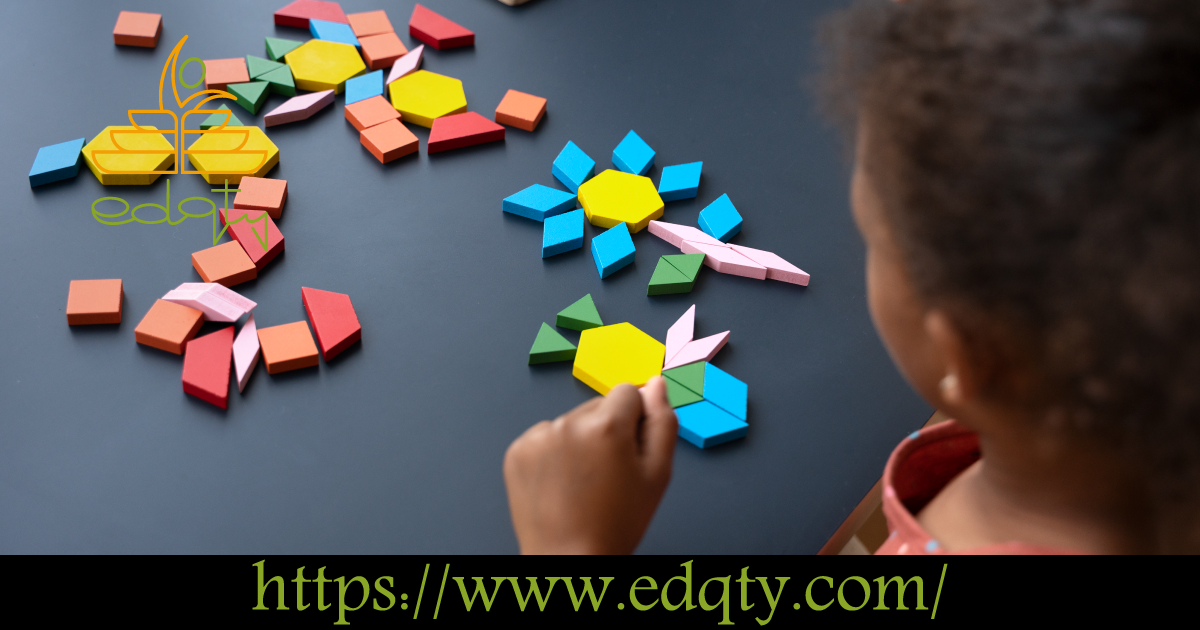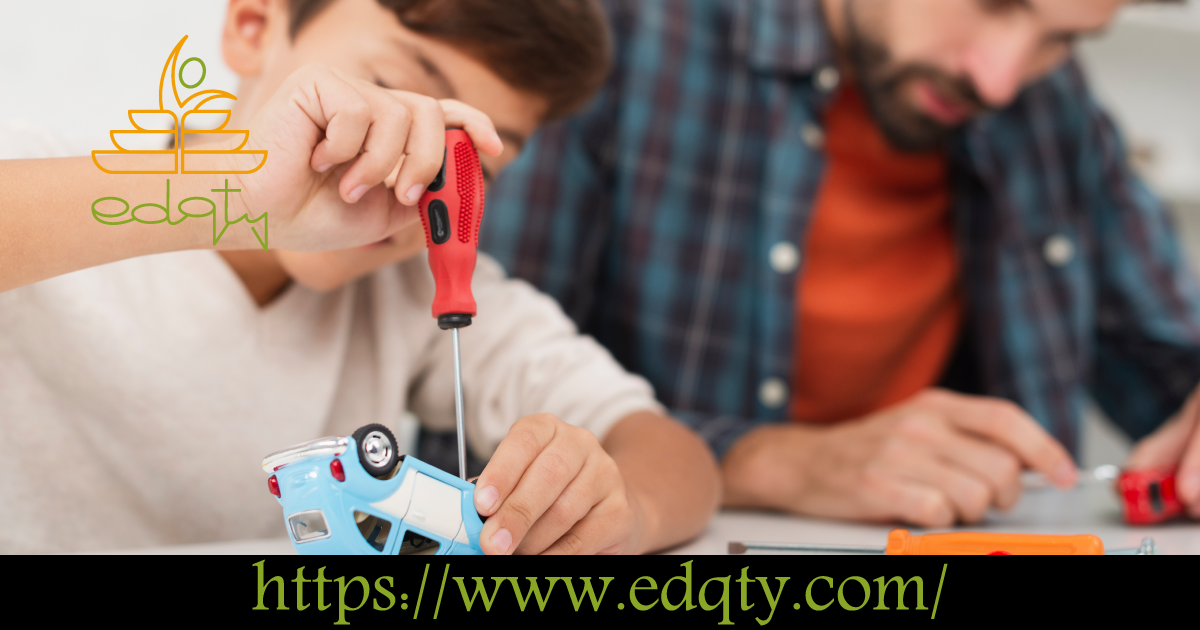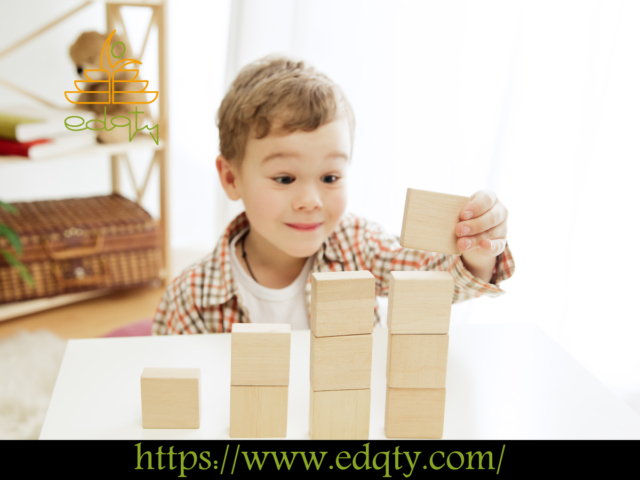Introduction: Cognitive Abilities in Child Development
Parenting a child requires more than developing emotional and social skills. Healthy emotional expression and empathy are important. However, emphasizing them can eclipse the importance of cognitive skills. These intellectual capacities enable children to understand and make sense of information in a manner that defines their world. By developing these skills to analyze ideas and solve problems, parents establish a firm foundation for child development. This holistic method guarantees young children engage boldly, address challenging tasks, and respond to change. As these domains develop synchronously, children achieve a balanced perspective that fosters overall well-being. Emphasizing these fundamentals also highlights the significance of cognitive abilities in child development, ensuring a child’s growth remains well-rounded.
In this article, we discover how these thought abilities develop and why they are important. We also cover useful ways to nurture them. Children utilize these skills to perceive their world, sort out ideas, and use knowledge in everyday life. Understanding how they think and solve problems helps parents better support growth. We will cover examples of everyday skills, such as language comprehension and logical reasoning, which are important for child development. Our goal is to show how nurturing these traits creates confident learners for school and beyond. With consistent support, children can reach milestones that transform their potential.
Why Cognitive Abilities in Child Development Are Essential?

1. Establishing a Foundation for Lifelong Learning
Children who have solid cognitive abilities at an early age are able to capitalize on those abilities for later development. Research has shown that babies who are proficient at identifying speech elements tend to perform well in language activities by age two. They also learn to read sooner, and confidence and school performance improve. If parents provide consistent practice, children develop mental flexibility. This establishes a basis for them to master difficult challenges as they progress through child development.
2. Enhancing School Preparedness and Scholastic Success
Children who have strong thinking skills can concentrate, remember information, and play with advanced concepts. Such skills are vital in beginning school, where paying attention and understanding count. Science reveals that powerful mental faculties—such as reason and memory—can help to keep knowledge. When children master social interaction and classroom learning, they develop scholarly practices that reinforce them. Such cognitive foundation primes them for continuous success in their academics. It also reflects how cognitive abilities in child development contribute to a well-structured approach that supports both focus and self-confidence.
3. Influencing Future Well-Being and Achievements
A child’s capacity to reason and solve problem impacts outcomes in adulthood, such as career and relationships. What the science confirms is that mental abilities directly correspond to long-term fiscal well-being. Kids who learn to make considered decisions are then able to more adeptly manage sophisticated challenges later in life. By reinforcing such mental capacities, parents enable children to develop resilience. This resilience enables them to cope with changes and sustain equilibrium far into the future.
4. Equipping Children for an Ever-Evolving World
Contemporary industries require skills such as analytical thinking and creative thinking, which are fundamental mental abilities. The World Economic Forum’s Future of Jobs Report cites these qualities as the most important for upcoming professions. Children who are taught to assess challenges from a variety of perspectives build solid resilience. This adaptability becomes vital in the pace-setting environment where automation and global interaction increase on a daily basis. By instilling these tendencies early in life, parents prepare them to thrive during accelerating economic transformation.
Examples of Core Cognitive Abilities in Child Development
1. Critical Thinking: Evaluating and Making Informed Judgments
Critical thinking entails analyzing information and making judgments. Children apply it to identify connections, weigh other people’s viewpoints, and deduce potential results. When they pose questions such as “Why?” or “How?”, they think more profoundly. The ability promotes them to go beyond mere observations. Excellent critical thinking promotes independent learning, which drives child growth. By cultivating the attitude, parents prepare children to tackle problems assertively in every aspect of life.

- Home: At home, children exercise critical thinking in planning chores in place of other playtime or evaluating healthy foods. They will reschedule the day to do homework first and then balance out how that option impacts fun activity. This practice of weighing advantages and disadvantages leads to independent decision-making.
- School: In class, students critically think by examining multiple sides in argument. They also learn how to apply course material to real life. For instance, a science experiment may involve testing hypotheses and analyzing results. This is how curiosity is initiated and understanding of course material improved.
- Social: Children apply critical thinking in social settings by taking into account their emotions or assessing group dynamics. They might reflect on a friend’s reaction after a fight or question whether certain jokes are appropriate. By weighing various possibilities, they develop empathy and communication. This balanced perspective leads to healthier relationships.
All these facets connect with cognitive abilities in child development, ensuring a holistic growth approach.
2. Logical Reasoning: Drawing Conclusions from Observation
Logical thinking helps kids arrive at conclusions based on what they’ve observed. They can predict results, identify patterns, and associate items. Logical thinking is a problem-solving device as it enables them to slice big jobs into teeny tiny steps. With advancing logical thinking, kids are capable of identifying patterns in day-to-day happenings. This helps them make more informed decisions, whether it is to do something simple at home or a tough decision at school or with friends.

- Home: Children at home employ logical thinking in determining whether they require a coat when it is cold outside. They may even deduce the absence of a person if a family vehicle is gone. These understanding enable them to predict consequences and prepare for actions, be it checking weather or establishing daily routines.
- School: In classroom settings, reasonable thinking is demonstrated when kids predict the endings to stories or finish multi-step computations. They can rule out possible wrong answers in a test or make hypotheses after observing. They sharpen their way of structuring thoughts by making use of deductive thinking. This process improves clarity and exactness in schooling.
- Social: In social interactions, rational thinking may assist a child in concluding that a friend is angry if they notice tears. Children also modify group tactics in games to maximize winning opportunities. Through cautious observation of cues, they learn to react appropriately. This practice molds empathetic behavior and fosters enduring friendships.
When viewed broadly, cognitive abilities in child development encompass these logical processes, benefiting children’s daily routines.
3. Reading Comprehension: Decoding and Deriving Meaning
Reading comprehension is the process of decoding text and making sense out of it. Children use the skill to read instructions, collect information, and create their own knowledge about a passage. Through linking words to existing knowledge, they build up vocabulary and critical thinking skills. Good reading comprehension is essential in academic work, ranging from writing reports to solving homework questions. It also expands their view and fosters lifelong learning in different subjects.

- Home: At home, kids enhance reading comprehension through reading recipes, decoding text messages, or label reading. They learn to draw out vital information, such as amounts of ingredients or critical reminders. By incorporating simple reading tasks into everyday routines, parents fortify their child’s skill to read written text.
- School: Reading comprehension in the classroom enables students to respond to questions regarding assigned reading. They are also taught to analyze passages for main points and supporting details. This skill supports projects such as book reports, essays, or research assignments. Through understanding intricate material, they develop deeper knowledge that aids subsequent academic achievement.
- Social: Socially, kids employ reading comprehension in complying with written instructions for playing a game or in deciphering party invitations. They may read a board game package instructions, and then retell them to peers. Such an ability promotes collaboration and aids clear communication. In comprehending written information, they become more engaged in a group.
Encouraging this type of literacy also strengthens cognitive abilities in child development for broader, long-term gains.
4. Quantitative Skills: Applying Numerals to Everyday Tasks
Quantitative skills are the use of numerals in reasoning, measurement, and solving problems. Everyday actions, from handling money to gauging time, depend on these skills. Concepts of addition, subtraction, and fractions enable a sense of practical confidence. They gain skills in interpreting data as they progress. This development helps them manage math-related challenges at school and in life, creating a vital connection between logical thinking and child development in general.

- Home: Kids practice quantitative skills at home by measuring ingredients for baked goods or counting money in a savings bank. They may monitor chores that are done weekly to receive an allowance. Such daily activities instill real-life mathematical concepts, fostering accuracy and consistency. By connecting numbers to real life, children build math confidence.
- School: At school, in the classroom setting, learners develop quantitative capabilities through solving mathematical problems, reading graphs, and discovering new operations. Teachers introduce examples such as measuring attendance in class or comparing scores of tests. All this illustrates for the students how numbers relate to everyday life. It increases interest, as learners realize concrete outcomes from their calculations.
- Social: Socially, quantitative skills emerge when children keep track of scores during games or divide resources equally. They may have to determine the number of snacks each friend gets or monitor points in a fun competition. Fairness creates a sense of cooperation and problem-solving. Children build math confidence as well as enhance peer relationships by doing so.
Such real-world interactions further illustrate cognitive abilities in child development, linking numbers and logical reasoning to day-to-day experiences.
5. Problem-Solving: Overcoming Obstacles with Creativity and Persistence
Problem-solving is identifying an issue, thinking of ways to solve it, and choosing an action plan. Children who are good at this area exhibit determination and originality when they are faced with obstacles. They get to change their approach if one does not work. By honing these skills, children develop mental acuteness that guides them in academic and social situations. Problem-solvers are also more self-sufficient and find resources and work with others to resolve obstacles.

- Home: At home, problem-solving emerges when children repair a broken toy or learn how to get something on a high shelf. They may get a stool or ask an adult for help. By solving everyday challenges creatively, children build resilience. This attitude prepares them to deal with larger challenges.
- School: In the classroom, problem-solving occurs when students are having trouble with ideas or complicated assignments. They may divide a difficult math problem into stages or ask others for help. Through trial and error with methods, they become more knowledgeable and proactive learners. This resourcefulness habit helps them as assignments become increasingly difficult.
- Social: Children exhibit problem-solving socially by being flexible with rules when there’s a missing game piece or breaking up fights among friends. They may offer out-of-the-box solutions to allow play to proceed or suggest a turn during an argument. Children acquire negotiation through such strategies. This creates balance and establishes an encouraging group setting.
Such adaptability demonstrates another facet of cognitive abilities in child development, which helps children navigate diverse life experiences.
You Might Like: Gamification in Education: Empowering Students & Staff
Activities That Strengthen Cognitive Abilities
Carefully designed exercises can enhance mental abilities through the sharpening of memory, attention, and reasoning capacities. Parents who present interactive, games-like activities urge children to study through discovery. When children are able to look at learning in a positive, enjoyable light, they remain excited to challenge higher-level material. By combining programmed exercises with original fun, families can foster healthy thinking processes. This method is in line with overall objectives in child development as children become proficient in interpreting their world. Eventually, regular practice through experiential learning begets curiosity. With constant support, children acquire the cognitive flexibility required to excel at home, school, and in their social circles. Providing these exercises consistently emphasizes cognitive abilities in child development and paves the way for steady growth.

1. Puzzle Play: Boosting Spatial Reasoning
Puzzle games are able to improve thinking abilities by promoting spatial reasoning and problem-solving. They challenge kids to find shapes, fit tests, and turn pieces, which enhances visual perception. Mental flexibility is developed through puzzle playing, and children are encouraged to experiment with new approaches until they are successful. Through their advancement from easy jigsaws to intricate patterns, children develop perseverance. Focusing and logical thinking is built through this enjoyable but challenging process.
2. Reading Together: Building Language and Imagination
Reading with children develops language processing, understanding, and creative thinking. When parents stop to question characters or storylines, children learn to make inferences and anticipate consequences. This mutual exchange enhances vocabulary while refining concentration. Research connects early reading habits with higher literacy abilities later in life. By encouraging regular reading habits, families establish a solid foundation for child development. This activity also strengthens emotional connections and communication. Moreover, reading routines support cognitive abilities in child development, helping children grow intellectually and socially.
3. Exploring Nature: Encouraging Observation and Exploration
Promoting outdoor play assists children in developing mental capabilities by way of sensory discovery and observation. They can learn to observe patterns in leaves, recognize animal tracks, or study weather patterns. Research indicates that exposure to nature has the ability to activate creativity and problem-solving. Through exposure to various environments, children hone their attention span. Direct exposure to natural environments facilitates serenity, encouraging a positive mindset for development and exploration.
4. Asking and Answering Questions: Cultivating Curiosity and Reflection
Open-ended questions stimulate the curiosity of children and promote reasoning abilities such as analysis and evaluation. By encouraging children to give reasons for what they think, parents foster critical thinking and communication. Responding to their “why” also opens up broader horizons and enables them to make connections between concepts. Such a method creates active learning where children learn solutions through discussion. Through regular practice, they gain confidence in putting ideas into words and exploring multiple facets of a situation. This ongoing dialogue further boosts cognitive abilities in child development, as children learn to articulate thoughts clearly.
5. Sorting Activities: Enhancing Classification Skills
Sorting toys by shape, size, or color teaches children to apply classification skills with attention and memory. They learn to identify differences and think systematically. Sorting toys or dividing laundry creates focus and accuracy. This approach also establishes a foundation for math, science, and reading readiness. Organized play helps children become confident in handling details, which enhances larger problem-solving as they mature.
6. Reciting the Alphabet: Reinforcing Letter Recognition
Reading letters regularly assists kids in internalizing the components of language. Healthy letter-sound knowledge foretells early success in reading and boosts mental processing in terms of memory and attention. Singing alphabet songs or pointing to letters while going through daily routines exposes children to written symbols. Grounding in this manner speeds spelling, vocabulary, and overall literacy. It also establishes a positive pace for acquiring more complex communication skills. Each small practice session underscores cognitive abilities in child development, building robust literacy foundations.
7. Tailoring Activities: Integrating Personal Interests into Learning
Invoking a child’s interest enhances motivation and enhances reasoning skills. For instance, if the child is interested in dinosaurs, parents can read books about dinosaurs or ask questions regarding habitats. This makes learning fun and interesting. Through inclusion of individual interests, children become more connected with the content. They engage problems with more excitement and tend to remember facts better. This technique encourages long-term understanding above conventional lessons.
Building on the Cornerstones of Cognitive Development

Kids develop when parents support intellectual capacity in conjunction with emotional and social development. Traits such as problem-solving, comprehension of texts, and sound judgments determine the ways in which children perceive and act upon the environment. Such capabilities form the bedrock for long-term learning that leads to high academic performance, personal satisfaction, and healthy interaction with others. As children develop, continued strengthening of child growth methods secures them curiosity and resilience. Families emphasizing intellectual and interpersonal strengths lead children to balanced achievements. Through practice combined with constructive feedback, parents foster resilience and problem-solving skills. This well-rounded approach trains young minds to thrive in continuously changing situations.
Additional Approaches for Ongoing Progress
Outside of routine activities, parents monitor progress through simple evaluation or observation. For example, they could point to gains in puzzle-solving time or reading accuracy. Setting attainable goals, families encourage kids to keep going while fostering good competition against themselves. Working together with teachers also provides feedback on areas in which skills require additional practice. Cognitive skills programs in some schools provide more learning structure for parents. It is important to balance structured tasks with free play since both support different kinds of mental processes. By doing so, children create an all-around tool kit for dealing with real-world problems.
A growth mindset also enhances child growth in these regions. Children, when they recognize that skills improve through practice, become more tenacious following failure. Parents are able to reflect this attitude through demonstrating how they learn from mistakes, with an emphasis on failures being stepping stones towards progress. Promoting reflection also enhances thinking abilities, since children assess strengths and weaknesses. By honoring small wins, families emphasize gradual gains, instilling confidence and perseverance. With time, children with a growth mindset view obstacles as challenges to learn from. This mindset drives them to remain curious and innovate, even in uncertain situations. Adopting a growth mindset anchors cognitive abilities in child development, ensuring children continually adapt and grow.
Also Read: Podcasts in Education: How Audio Learning Transforms the Class
Conclusion: Cognitive Abilities in Child Development
Building strong cognitive abilities is an active process that includes ongoing practice, varied experiences, and a nurturing environment. As children participate in activities that challenge critical thinking, logical reasoning, and creativity, they build enduring competencies. These skills influence child development, enhancing academic performance and social maturity. By mixing structured challenges with exploratory play, parents provide enriching opportunities for development. This vigilant nurturing of mental flexibility sets the stage for kids to develop into flexible, clever individuals. When they take these abilities with them into adolescence and beyond, they are always ready for changing requirements. Ultimately, spending money on cognitive skills means a better future. In every sense, cognitive abilities in child development remain the cornerstone of a child’s potential and long-term fulfillment.








